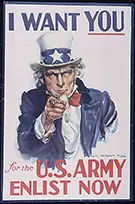VE and VJ Days
“VE day stands for Victory in Europe”.
Germany had been defeated by the Allied forces, but the Nazi leader Adolf Hitler was no longer alive. His successor, Grand Admiral Donitz, travelled to American General Eisenhower’s headquarters in Reims, France and on the 7th of May, 1945, Germany surrendered unconditionally to Western and Russian military commanders.
The next day, the 8th of May, was declared as the official day of celebration. People all over Europe were tired of years of hardship and bombing, they wanted to return to a normal life again. In London, tens of thousands of people came into the city centre. They listened to a speech by Prime Minister Winston Churchill in Trafalgar Square which was delivered over the radio through huge loud speakers. George VI, Queen Elizabeth and their two daughters, Elizabeth and Margaret, also greeted the cheering crowds from their balcony at Buckingham Palace.
These scenes of joy were the same throughout the United Kingdom: People put up flags, banners and streamers were everywhere. There were parties, fireworks, and some people wore red, white and blue rosettes. People hugged, sang songs and danced.
Similar celebrations took place in Paris where people marched through the streets of the capital waving French and Allied flags.
The Soviet Union marked its own “Victory Day” on May the 9th based on a second German surrender to the Soviets in Berlin. There were fireworks over the Kremlin in Moscow, as well as joyous celebrations in Red Square. The Soviet leader Joseph Stalin announced the victory over the radio.
In America there were celebrations too. Thousands of people gathered on Times Square and there were street parties in other cities, including Chicago, Los Angeles and Miami. Yet, despite the happiness all around, Americans knew that the war for them was not yet over as Japan had not been defeated.


VJ Day
“VJ Day stands for Victory in Japan.”
This was a particularly important day as it meant that World War II was now finally over.
On July 26, 1945, the Allies made the Potsdam Declaration which demanded that Japan surrender. If it did surrender, the Allies promised that there would be peace and freedom for its people in the future. If it did not, Japan was threatened with “utter destruction”.

The Demand and the result
The Japanese refused to surrender. And so on the 6th of August 1945, an American B29 bomber plane, called ‘Enola Gay’, dropped an atomic bomb on the Japanese city of Hiroshima. It had a terrible effect almost wiping out the entire city and instantly killing over 70,000 people. It was followed by a second bomb dropped on Nagasaki which killed a further 40,000 people.
Emperor Hirohito delivered a radio address on August 14. The Emperor told his people to accept the surrender. He talked about the “new and most cruel bomb” that had been dropped on Hiroshima and Nagasaki as the reason for the defeat. He said: “Should we continue to fight, it would not only result in the ultimate collapse and obliteration of the Japanese nation, but would lead also to the total extinction of human civilisation.”

The end of the war
On the 14th of August President Harry Truman spoke to a large crowd outside the White House in Washington. He said: “This is the day we have been waiting for since Pearl Harbor”. The next day, the 15th of August 1945, Truman declared the day as Victory over Japan Day at a White House press conference.
There were more celebrations across America and in Allied countries. The streets of the main cities came alive as crowds gathered. The people were overjoyed: they sang, danced, lit bonfires and let off fireworks. Nearly six years of war had ended.

VJ day in recent times
Although VJ day was a very important moment at the end of World War II, celebrations of the event became less and less noticeable over the years. After the war, America and Japan began to work together more and the USA played a big role in Japan’s development. America did not want to spoil these good relations. President Bill Clinton went so far as to avoid the term VJ day calling it “the End of the Pacific War” in 1995.



